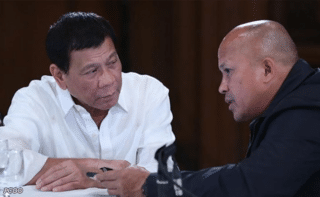Last week’s ratification of the organic law creating the Bangsamoro Autonomous Region in Muslim Mindanao (BARMM) is expected to boost the economy of the war-torn southern island, according to London-based Capital Economics.
However, the “big economic gains” to be reaped by the BARMM under its wider autonomy was seen “unlikely to have much impact on overall growth in the Philippines,” Capital Economics senior economist Gareth Leather and economist Alex Holmes said in a Jan. 25 report titled “Philippines: the economic benefits of peace.”
The referendum held last week was widely hoped to put an end to five decades of fighting between the government and Muslim separatist groups in Mindanao—which had dragged the economy of the country’s second-largest island.
“The Autonomous Region in Muslim Mindanao (ARMM), as it is currently known, is the poorest part of the Philippines, with GDP (gross domestic product) per head just one-fifth of the national average. Decades of conflict have deterred foreign investors and put off tourists, weighing on economic growth,” Capital Economics said.
Citing Philippine Statistics Authority data, Capital Economics noted GDP per capita in the ARMM was the lowest across all of the country’s regions in 2017, falling below $1,000.
“Lasting peace should provide a big economic boost to the area,” Capital Economics said. “The rebuilding of Marawi, a city of 200,000 people, would provide an immediate spur. And over the longer term, a safer environment could lead to the emergence of a competitive manufacturing sector and a viable tourism industry, providing higher-paying jobs.”
Still, the impact of peace in Mindanao to the Philippine economy “would be small.” “Even if [the BARMM’s] growth were to average 10 percent over the next 10 years, the boost to national GDP growth would be less than 0.1 percentage point a year.” —BEN O. DE VERA



